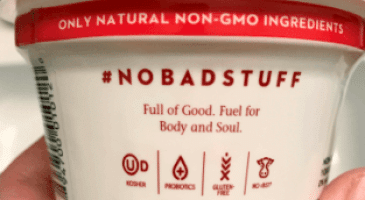An increasing number of companies are phasing out their use of genetically modified organism (GMO) ingredients, and it’s affecting the entire supply chain. Chipotle is the latest big brand to join the non-GMO movement; the restaurant chain recently announced that they have reached their goal of eliminating GMOs from the ingredients they use to cook their food. Restaurants, retailers, and manufacturers alike are jumping on this trend. For example, Whole Foods, Panera Bread, and Kashi have all pledged that some or all of their products will soon be GMO-free.
A GMO is created by inserting genes from one species into the DNA of another to create some desired result. For example, plants might be genetically engineered to develop a resistance to insects or to increase nutrients. GMOs have been used in the United States for more than 20 years. Though there is no scientific proof that GMOs are unsafe, many consumers are skeptical of the long-term implications.
GMO traits that cause the most concern to consumers and health-conscious companies are herbicide resistance and pesticide production. A handful of studies outside the U.S. have found GMOs to be harmful, having toxic effects on animals that are fed with genetically modified crops. Many feel that until we have more long-term independent studies on the implications of GMOs, we should not use them.
On the other side of the debate, many people think that consumer fears about GMOs are unwarranted. A recent poll found that 88 percent of scientists in the United States believe GMOs are safe to consume (nymag.com). In addition, removing GMOs from a food supply chain is difficult and expensive. Without proof that GMOs are harmful, many are reluctant to invest in making such a drastic change.
Still, demand for natural foods with “clean” labels is on the rise. Sixty-five percent of consumers think that food or beverages described as GMO-free are healthier than typical foods. Even more believe that food or beverages described as “natural” or “antibiotic-free” are better for them.
The growing trend toward non-GMO ingredients has large impacts on the supply chain. The overwhelming majority of corn and soybeans grown in the U.S. come from GMO strains. As a result, 80 percent of the foods we consume contain genetically modified ingredients (MHLnews.com). Brands that stop using GMOs will face difficulty finding suppliers that can comply with their standards. Because the supply of these ingredients is limited, a higher demand creates higher prices for food companies. Transportation costs are also higher for these companies, as they often have to purchase their ingredients from suppliers that are located further away. As a result, consumers pay higher prices. If more companies continue to eliminate GMOs from their products, corn and soybean farmers may take a hit, and consumers may see even higher prices.
Though the verdict is still out on whether GMOs are safe, consumer demand for high-quality, natural ingredients will likely continue to grow. Those who are working in the organic and natural foods space should make sure to stay informed on what thresholds a product must meet to be considered non-GMO. Additionally, food manufacturers should be prepared in case GMO food labeling becomes required.
Suppliers should analyze their partnerships to determine if the companies they work with are likely to follow this trend, and be prepared to develop some non-GMO options where possible. Suppliers should also consider other areas they may be able to improve the quality of their food. For example, Tyson Foods recently announced it would phase out the use of human antibiotics from its chicken supply, and PepsiCo recently made a pledge to remove aspartame from its diet soft drinks. As consumers become more mindful of what goes into their food, moves like these will become increasingly important.

